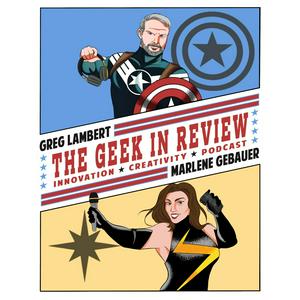Laura Clayton McDonnell on Legal Technology, AI, and Corporate Transformation at Thomson Reuters
This week, we welcome Laura Clayton McDonnell, President of the Corporates Business Segment at Thomson Reuters. Laura shares her inspiring journey from corporate securities law to executive leadership at top technology companies, including Apple, Cisco, IBM, Microsoft, and now Thomson Reuters. She discusses how her Silicon Valley upbringing and her family’s immigrant experience have shaped her leadership style and commitment to innovation in the legal industry. Laura’s personal purpose—rooted in values like courage, curiosity, and integrity—drives her mission to deliver measurable value to clients through legal technology and business transformation.The conversation highlights the rapid advancements in legal technology, with a special focus on the impact of generative AI and agentic AI in the legal sector. Laura explains how she stays ahead of legal tech trends by collaborating with internal teams, listening to customer feedback, and learning from her daughter, a practicing transactional lawyer. She emphasizes the importance of a growth mindset, continuous learning, and adaptability—qualities she honed during her time at Microsoft under Satya Nadella’s leadership and through the teachings of Carol Dweck’s “Growth Mindset.”Laura provides insights into how corporate legal, tax, and compliance departments are evolving from traditional cost centers to strategic business partners, thanks to innovative legal technology solutions from Thomson Reuters. She discusses how tools like Westlaw, Practical Law, Legal Tracker, and OneSource are helping legal professionals automate routine tasks, reduce contract review times by over 80%, and save millions on outside counsel spend. Laura notes that forward-thinking clients are not just adopting new legal tech tools—they are developing comprehensive strategies to transform business processes, training, and staffing for the future of legal work.The episode also explores the rise of alternative legal service providers (ALSPs) and the ongoing bifurcation of the legal market driven by technology adoption. Laura observes that general counsel are increasingly sophisticated in their approach, weighing cost, complexity, and the use of AI to achieve better outcomes. She stresses that legal technology is now essential for law firms and ALSPs alike, and that innovation and value delivery are key to staying competitive in the evolving legal landscape.Looking to the future, Laura predicts that predictive analytics, risk assessment, and cross-functional insights will become even more critical for legal, tax, and compliance professionals. She highlights the growing demand for skilled legal talent and the importance of ongoing training, ethical oversight, and building resilient, growth-oriented teams. Laura encourages legal industry leaders to prepare for a future where human expertise and advanced legal technology work together to drive strategic transformation and business success.For more information on legal technology trends, AI in the legal industry, and upcoming events, Laura invites listeners to connect with her on LinkedIn or visit Thomson Reuters. She also highlights the upcoming Thomson Reuters customer conference in November, where attendees can experience product demos and gain insights into the latest legal innovation and industry trends. Listen on mobile platforms: Apple Podcasts | Spotify | YouTube[Special Thanks to Legal Technology Hub for their sponsoring this episode.] Links:• Forbes Article • GenAI Report• State of the Corporate Law Department ReportBlue Sky: @geeklawblog.com @marlgebEmail:
[email protected]: Jerry David DeCicca
